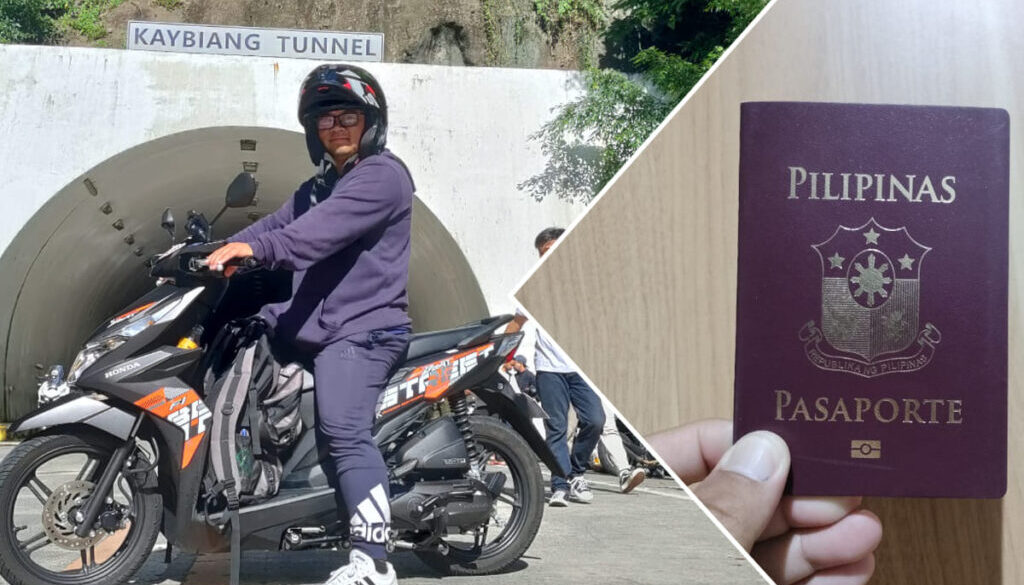Top 5 Reasons to Guard Your Passport During Travel: My Stressful Experience in Batangas
Have you ever experienced the sheer panic of losing your passport while traveling? On April 27, 2024, I faced this exact situation in Batangas, Philippines. After visiting the Kaybiang Tunnel and buying a coconut drink from a fruit stand, I unknowingly left my bag—with my wallet, passport, and IDs—behind. Realizing it was missing while buying jackfruit, I rushed back to the stand, but my bag was gone. The stress and anxiety that followed were overwhelming. Losing a passport can disrupt your plans and cause numerous legal and logistical challenges. Keep reading for valuable insights and to highlight the importance of passport during travel and top 5 reasons why you should avoid losing it.
1. Identity Verification Issues
Passport is a primary form of identification. Losing it can make it challenging to prove identity, which is necessary for various transactions and verifications.
“My passport and other IDs were in my sling bag, so it was difficult to find identification. If something bad happened to me, no one would be able to identify me. In Batangas, I had to get a Police Clearance because Cebu Pacific accepts it as an ID. However, many other establishments do not accept it. It’s so frustrating and sad.”
2. Affecting Travel Plans
Without a passport, travel plans can be significantly delayed or canceled due to the need to obtain a replacement.
“I lost my passport on April 27. I had upcoming trips to other places in the Visayas, but I couldn’t proceed because I didn’t have an ID to show to the airlines and ferries. The worst part was that I was supposed to return to Saudi Arabia on May 4. I tried contacting the company’s travel staff, but they told me my ticket couldn’t be rebooked. As a result, I had to extend my stay in Philippines for several days (8-10 working days) to go through the process of getting a replacement passport.”
3. Difficulty in Re-Entry
Leaving the country without a passport can make it harder to come back, especially in Saudi Arabia. They have strict rules, so you need extra checks to prove who you are before you can return.
“I had to reach out to our HR department to update my information with the new passport number so that I could proceed with obtaining my new exit-reentry visa before returning. The process required careful attention to detail to ensure all necessary paperwork was correctly updated and processed.”
4. Cost of Replacement
Replacing a lost passport involves fees and hidden expenses. These can add unexpected expenses to your budget.
“The cost of losing my passport went far beyond the Php 950 for express processing. I also spent nearly Php 5,000 flying from Manila to Mindanao to save on accommodation and food costs while waiting for the new passport, which took 8-10 working days. I had to pay for affidavits of loss for my passport and IDs, delaying my return to Saudi Arabia from May 4 to May 26 and losing 22 days of pay. Additionally, I spent almost Php 38,000 on a new ticket to Saudi Arabia and nearly Php 7,000 on extra travel costs from Mindanao to Manila. On top of that, I faced a SAR 1,000 (Php 14,500) penalty in Saudi Arabia for the lost passport. It was a heartbreaking experience.”
5. Time-Consuming and Stressful Replacement Process
The process of getting a new passport can be time-consuming, requiring you to fill out forms, provide photos, and potentially wait in long lines and requirements to another requirements.
“Obtaining a new passport was time-consuming without any ID. I got an affidavit of loss from the Notary Public and a police report, then prioritized reprinting my Philippine driving license as my only viable ID. Despite challenges with plastic card availability, I managed to get it reprinted. Visiting DFA-Butuan without an appointment was fruitless due to ID requirements, forcing me to return multiple times to resolve the issue. The process was a stressful experience, especially as an OFW. Can you relate, kabayan?”
Despite the unfortunate incident of losing my passport, this experience taught me to take better care of important documents when traveling, especially in remote areas where it could be more challenging. If the situation was difficult here in the Philippines, it would be even more so if it happened abroad. This was a lesson learned for me and for others. For now, I have returned to Saudi Arabia and resumed my normal routine.
If you have a story as an OFW that you’d like to share with others, feel free to write it in the comment section and don’t forget to subscribe. Thank you very much.


